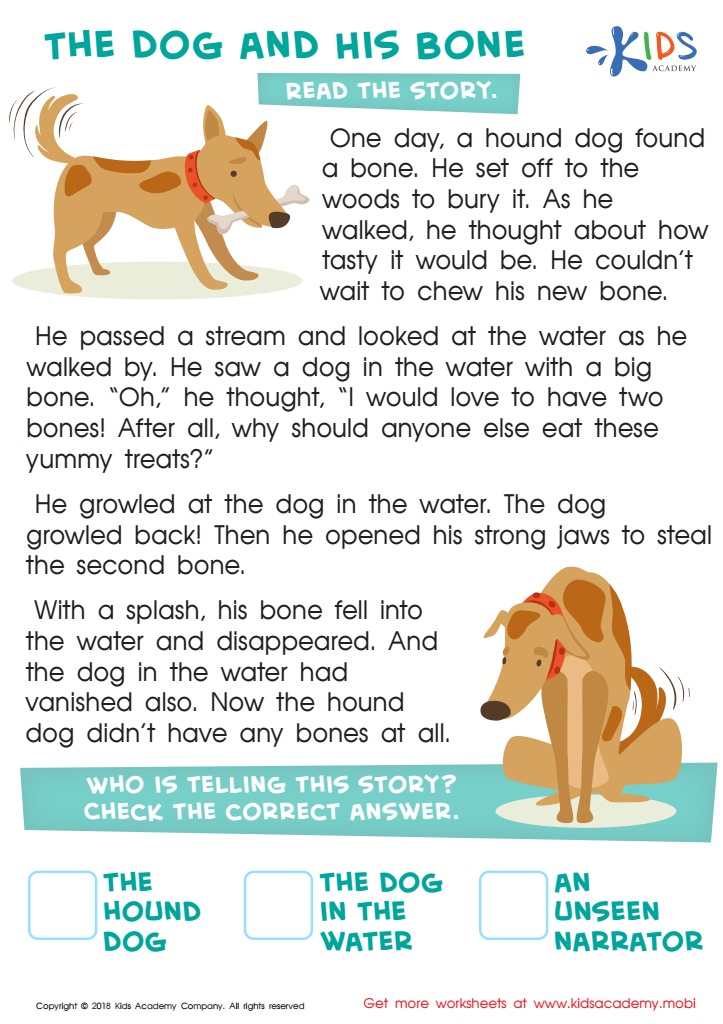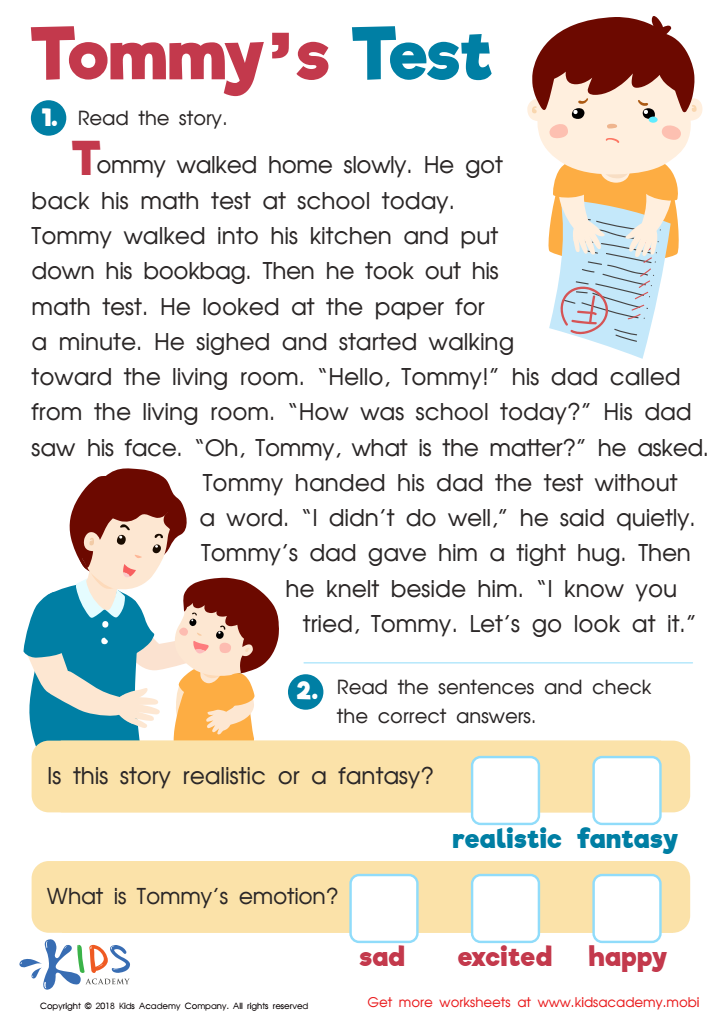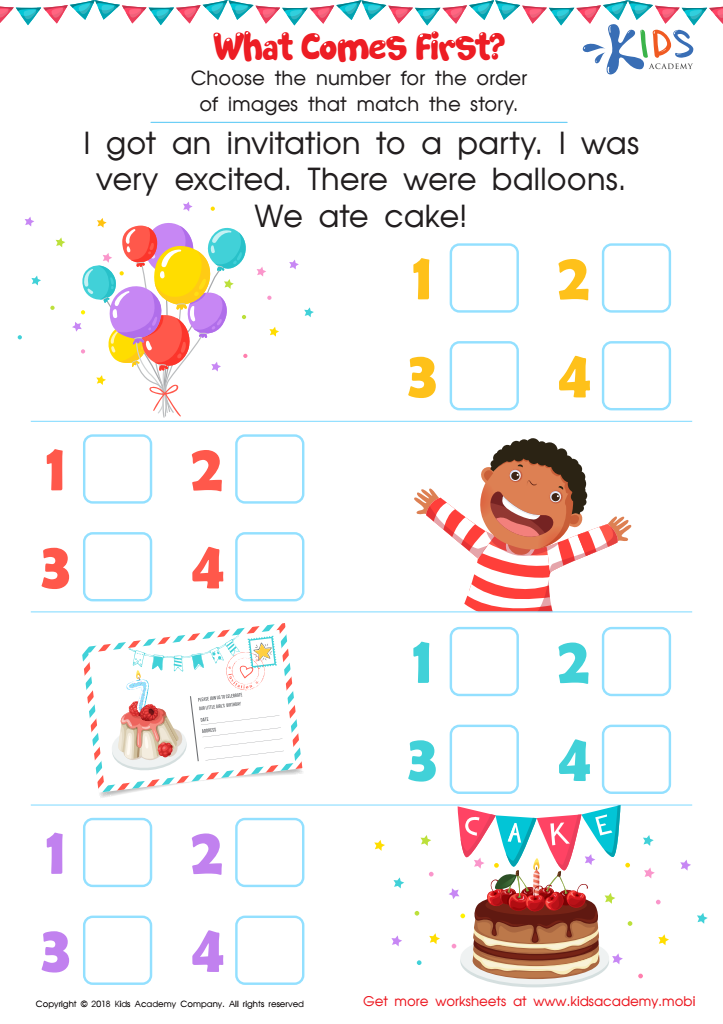Logical thinking Normal Reading Worksheets for Ages 6-8
3 filtered results
-
From - To
Enhance your child's logical thinking skills with our engaging Reading Worksheets designed specifically for ages 6-8. These printable resources feature age-appropriate activities that blend reading comprehension with critical reasoning. Perfect for early learners, our worksheets invite kids to analyze stories, make predictions, and solve problems creatively. Each activity aims to foster a love for reading while encouraging cognitive development. Whether in the classroom or at home, these worksheets provide a fun and educational way for children to sharpen their thinking abilities. Discover a world of logical reasoning and enriching literacy experiences today!


The Dog and His Bone Worksheet


Tommys Test Worksheet


What Comes First Worksheet
Logical thinking and reading skills are crucial for children aged 6-8, as they form the foundation for their future academic and life success. At this developmental stage, children are not only learning to read but also to understand the concepts and values embedded within texts. Logical thinking enhances their problem-solving abilities, enabling them to connect ideas and think critically about what they read and observe.
Parents and teachers should emphasize logical thinking in combination with normal reading because it promotes cognitive development, helps children analyze information, and supports their ability to make reasoned decisions. Children who engage in activities that promote logical reasoning—like puzzles, games, and discussions—are often better at interpreting stories, building coherent arguments, and fostering creativity.
Additionally, strong reading skills boost confidence and encourage a love for learning. As children read diverse materials, they explore new ideas and cultures, equipping them with essential social and emotional skills. Supporting logical thinking and reading in this age group ensures that children become effective communicators, empathetic listeners, and conscientious thinkers, all of which are vital for their future endeavors both in and out of the classroom. In essence, nurturing these skills lays the groundwork for lifelong success.

 Assign to My Students
Assign to My Students















